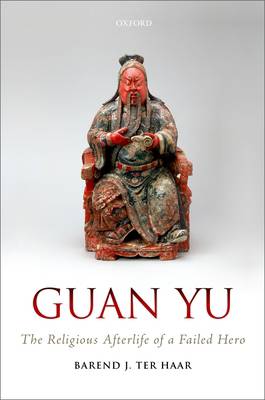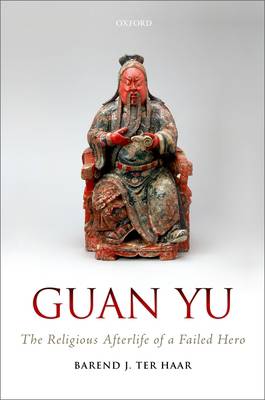
En raison d'une grêve chez bpost, votre commande pourrait être retardée. Vous avez besoin d’un livre rapidement ? Nos magasins vous accueillent à bras ouverts !
- Retrait gratuit dans votre magasin Club
- 7.000.000 titres dans notre catalogue
- Payer en toute sécurité
- Toujours un magasin près de chez vous
En raison de la grêve chez bpost, votre commande pourrait être retardée. Vous avez besoin d’un livre rapidement ? Nos magasins vous accueillent à bras ouverts !
- Retrait gratuit dans votre magasin Club
- 7.000.0000 titres dans notre catalogue
- Payer en toute sécurité
- Toujours un magasin près de chez vous
171,95 €
+ 343 points
Description
Guan Yu was a minor general in the early third century CE, who supported one of numerous claimants to the throne. He was captured and executed by enemy forces in 219. He eventually became one the most popular and influential deities of imperial China under the name Lord Guan or Emperor Guan, of the same importance as the Buddhist bodhisattva Guanyin. This is a study of his cult, but also of the tremendous power of oral culture in a world where writing became increasingly important. In this study, we follow the rise of the deity through his earliest stage as a hungry ghost, his subsequent adoption by a prominent Buddhist monastery during the Tang (617-907) as its miraculous supporter, and his recruitment by Daoist ritual specialists during the Song dynasty (960-1276) as an exorcist general. He was subsequently known as a rain god, a protector against demons and barbarians, and, eventually, a moral paragon and almost messianic saviour. Throughout his divine life, the physical prowess of the deity, more specifically Lord Guan's ability to use violent action for doing good, remained an essential dimension of his image. Most research ascribes a decisive role in the rise of his cult to the literary traditions of the Three Kingdoms, best known from the famous novel by this name. This book argues that the cult arose from oral culture and spread first and foremost as an oral practice.
Spécifications
Parties prenantes
- Auteur(s) :
- Editeur:
Contenu
- Nombre de pages :
- 320
- Langue:
- Anglais
Caractéristiques
- EAN:
- 9780198803645
- Date de parution :
- 12-12-17
- Format:
- Livre relié
- Format numérique:
- Genaaid
- Dimensions :
- 236 mm x 157 mm
- Poids :
- 635 g

Les avis
Nous publions uniquement les avis qui respectent les conditions requises. Consultez nos conditions pour les avis.






